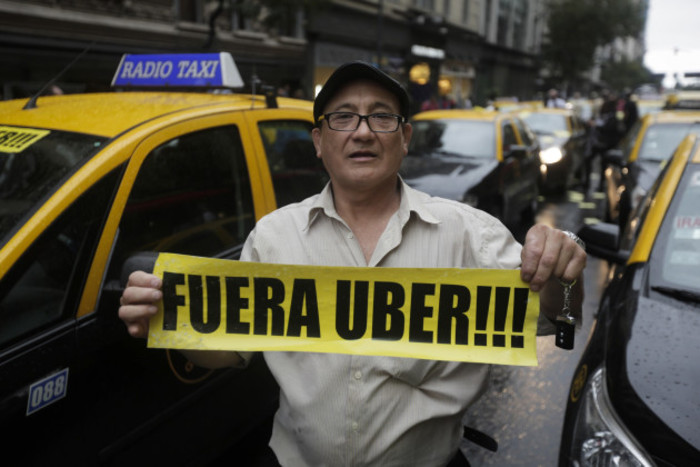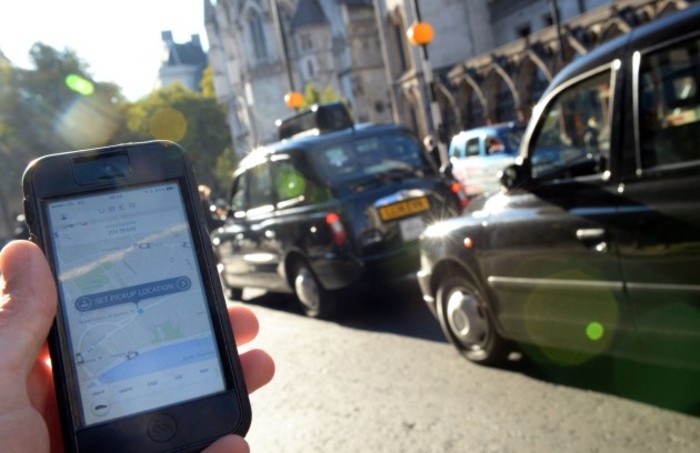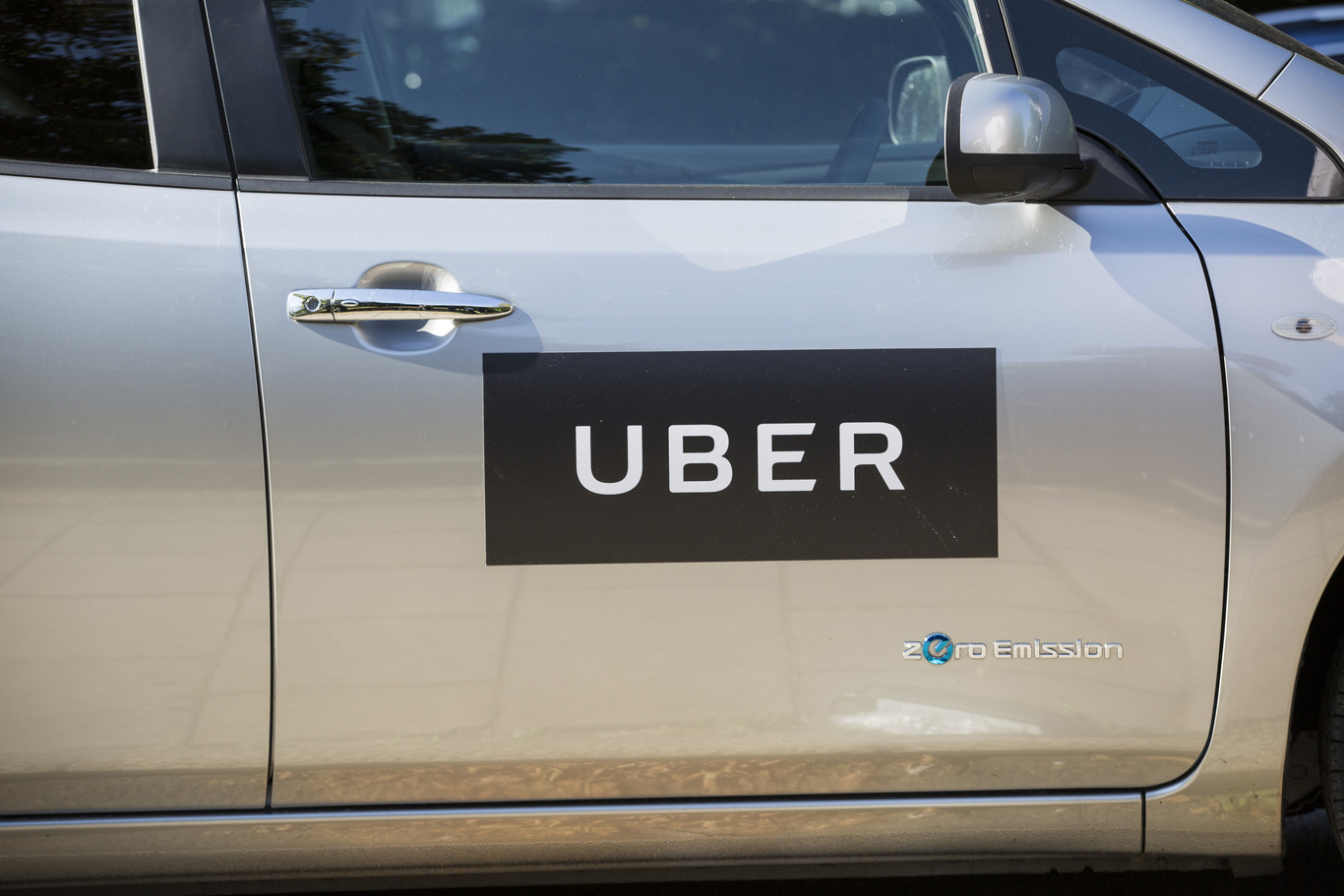Ireland is weighing into a row between Uber and a Spanish taxi company
The company’s flagship service is banned here – and the government wants to keep it that way.
IRELAND WILL INSERT itself into the middle of a European dispute that centres on whether US car-sharing giant Uber should be regulated like a taxi provider.
The government plans to join an upcoming oral hearing in a European Court of Justice case between a group called Asociación Profesional Élite Taxi and the San Francisco-based company.
Asociación Profesional Élite Taxi is Barcelona’s licensed taxi-drivers association and the hearing is being held to determine whether Uber should be treated as a digital service or a transport service.
The case has major implications for the company’s business in Europe, because if Uber is ruled an IT service it opens the door for it to circumvent national taxi regulations.
However if it is declared a transport service, the company can be regulated like any other operator.
While Uber has grown into one of the world’s biggest privately-held tech companies over the past seven years with its model of facilitating paid-for lifts in private drivers’ cars, it has run into heavy resistance from taxi companies in several jurisdictions.
 An anti-Uber protest in Argentina
An anti-Uber protest in Argentina
Besides passing basic background checks, Uber drivers don’t need to have a taxi- or hire-car licence.
Competition
When Uber tried to move into Barcelona in 2014, Asociación Profesional Élite Taxi complained to a local court that the US firm was in breach of competition rules.
The court was unsure as to how the law should be interpreted, so the case was referred to the ECJ.
Ireland is one of seven EU member states to get involved in the case, where it will argue that national taxi laws need to be upheld.
 Finance Minister Michael Noonan and Uber Ireland head Kieran Harte
Finance Minister Michael Noonan and Uber Ireland head Kieran Harte
A spokesman for the Department of Transport told Fora:
“Ireland’s position is that the ability of member states to regulate the services concerned must be maintained with a view to protecting the public interest and ensuring public safety and consumer protection.”
The government will argue that Uber’s business model, which involved “acting as an intermediary” between drivers and passengers, should be classified as a transport service.
In Ireland, Uber is currently treated like a dispatch operator, which means it is required to provide bookings only to a licensed driver using a licensed vehicle.
In practice, that means the company’s app can only be used to book taxis or chauffeur-driven cars, similar to Hailo, due to the effective ban on private drivers taking paying passengers. Uber has been lobbying for those laws to be changed.
 Taxis in central London and the Uber app on a phone
Taxis in central London and the Uber app on a phone
Growth
Uber is one of Silicon Valley’s fastest-growing companies with an estimated valuation of $68 billion. It has taken on nearly $13 billion in equity funding so far, including a $3.5 billion plunge from Saudi Arabia’s sovereign wealth pool.
The company opened a base in Limerick earlier this year and announced plans to hire 300 people to carry out support and customer-service duties for Uber’s operations in cities across Europe, the Middle East and Africa.






